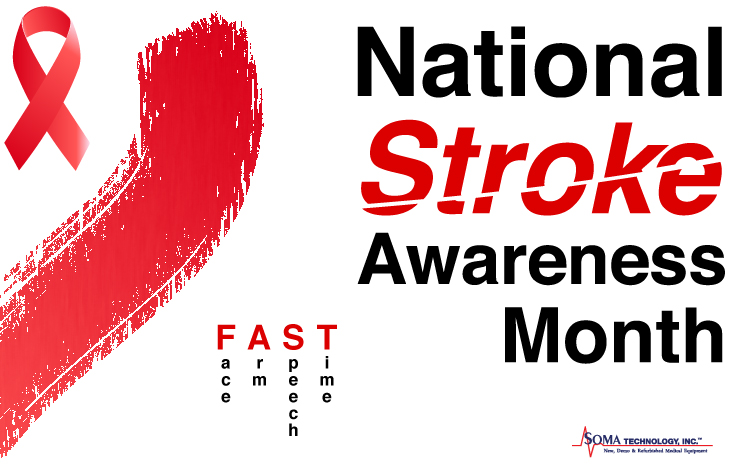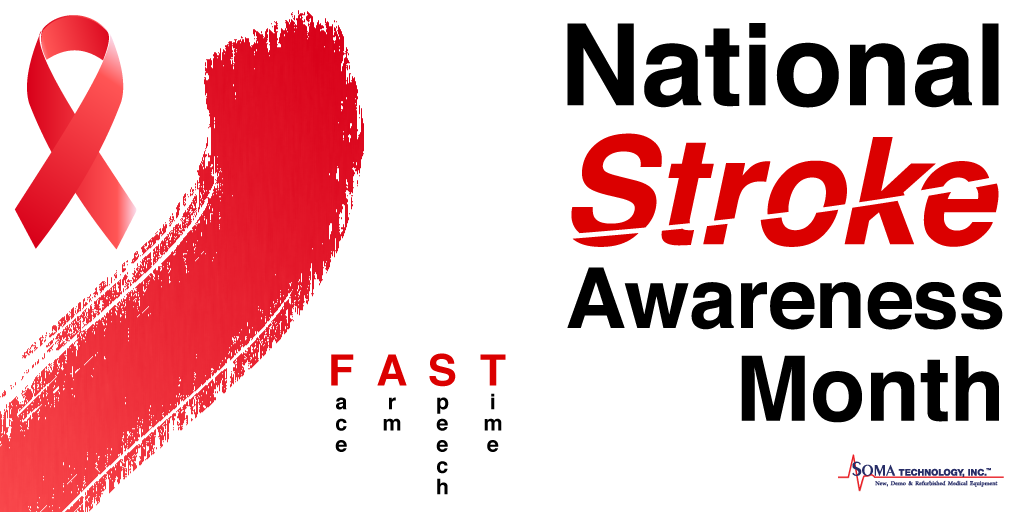National Stroke Awareness Month
May 2, 2018
National Stroke Awareness Month
May is National Stroke Awareness Month. Every four minutes someone will die from a stroke. This makes strokes the fifth leading cause of death or a leader in leaving people with severe disabilities.
What is a Stroke?
Strokes are incredibly time-sensitive and need to be handled immediately. The Mayo Clinic defines a stroke as a blockage of blood to the brain, where the brain can no longer receive nutrients or oxygen. This begins the process of brain cell death. The sooner treatment is received, the less likely it is to have lasting brain damage.
3 Types of Strokes
There are many different types of strokes. Here are a few! A thrombotic stroke happens when a blood clot restricts blood flow to the brain. An embolic stroke is when a clot happens in another organ, and restricts blood flow to the brain. This clot usually happens in the heart. A hemorrhagic stroke happens when a vessel in the brain ruptures.
Stroke Symptoms
There are tell-tale physical symptoms of someone having a stroke. These symptoms include paralysis of the face, trouble speaking and understanding, trouble with vision, a headache, and trouble walking.
FAST
Using the acronym of FAST can help save lives. The Mayo Clinic posted that:
- Face – Ask the person to smile. Does one side of the face droop?
- Arms – Ask the person to raise both arms. Does one arm drift downward? Or is one arm unable to rise up?
- Speech – Ask the person to repeat a simple phrase. Is his or her speech slurred or strange?
- Time – If you observe any of these signs, call 911 immediately.
Complications
If death does not happen to a person stroking out, then they will face difficult challenges. In regards to physical deformities such as paralysis, there will be decreased brain functions. The brain controls our nervous system, and that will be compromised.
People who do not recover from a stroke will face paralysis and loss of muscle movement. A difficulty with talking and swallowing become noticeable, as this is also found as a result of people who have Parkinson’s. People will also face having memory loss and trouble thinking. The brain damage may also cause people to become antisocial, and diminish the ability of them to take care of themselves. Often people who have a stroke will need assistance in the future in terms of emotional care, and physical well being.
Tips to Avoid Strokes
- Quit smoking
- Lose weight
- Lower your blood pressure
- Monitor the use of blood thinners
- Reduce alcohol consumption
- Manage diabetes
- Exercise regularly
- Eat well
Final Thoughts?
Did this article educate you on national stroke awareness month? Do you feel confident as if you could describe a stroke to someone who has no idea what it is? Do you know of anyone who has suffered a stroke? Are you going to do any of these tips? Comment below.
1 comment
Leave a Reply
Explore Other Blog Items By Category
Recent Posts


Surgical Microscope Rentals



It really helped when you described how we’d prevent strokes and what happens if we ever get one. Not long ago, my wife’s dad almost had a stroke, and it got us thinking about how life’s so short and easy to lose, so I’m hoping your article helps our families understand the importance of taking care of our health. Thanks for the information on avoiding high blood pressure levels and eating better.